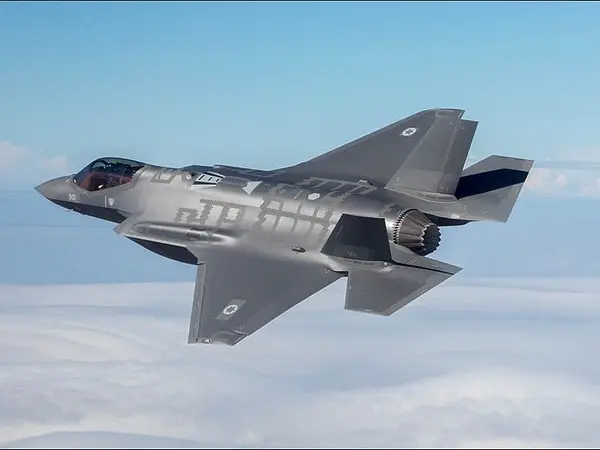Israel and the United States have conducted air exercises in southern Israel in what an observer said, “could be signal to Iran in the ongoing nuclear standoff.”
Joint drills of Israeli F-35 jets and six US F-15 jets were based out of the Nevatim air base, where Israeli squadron commanders briefed Jerusalem Post military correspondent Jonah Jeremy Bob on training “for hitting targets in ‘deep’ enemy territory.” Bob wrote that the terminology was “often a euphemism for Iran and other countries who do not have immediate borders with Israel” and therefore should be seen a “signal to Iran.”
The return to power of Benjamin Netanyahu, heading a right-wing and pro-Jewish settler coalition, has fed speculation of an Israeli military attack on Iran. While outgoing prime minister Yair Lapid left office claiming Israel was better capable of striking Iran than ever, outgoing defense minister Benny Gantz told graduating air-force personnel late December they should be ready within “two to three years.”
Implying greater urgency, the Jerusalem Post’s report quoted a commander involved in Wednesday’s air drills that Israel’s three squadrons of US-supplied F-35s, even with some planes grounded for technical reasons, were “plenty, along with other Israeli fighter aircraft, to accomplish any mission that would need to be assigned.”
Netanyahu, whose warnings of an imminent Iranian nuclear bomb go back to the 1990s, is keen to stymie efforts by world powers to revive the 2015 Iran nuclear deal, the JCPOA (Joint Comprehensive Plan of Action). The Likud leader strongly backed President Donald Trump pulling the US from the JCPOA and imposing ‘maximum pressure’ sanctions impeding Iran’s access to international markets.
But Netanyahu and his ministers now stress their closeness to the administration of President Joe Biden, which took office pledged to restoring the JCPOA but has been unable to agree terms with Tehran. Netanyahu’s call this week to win ‘global opinion’ against Iran suggests he thinks he can shift Biden in the direction he wants.
According to Israel Hayom, the Israeli newspaper owned by the Adelson family, Antony Blinken, the US Secretary of State, told Eli Cohen, Israel’s foreign minister, by phone January 2 that the JCPOA was finished. But the State Department read-out of the call referred only generally to a “threat from Iran,” did not mention the JCPOA, and stated Blinken had “emphasized the continued US commitment to a two-state solution [for Israel-Palestine] and opposition to policies that endanger its viability.”
US concerns over the likelihood of the Netanyahu government speeding up Jewish settlements in the occupied West Bank are not just that demographic changes under what rule human rights groups have called ‘apartheid,’ doom the ‘two-state solution’ that Washington still formally backs. The recent World Cup in Qatar highlighted popular Arab support for Palestinian rights.
Netanyahu has also said he wants to extend Israel’s Trump-brokered ‘normalization’ agreements with some Arab states, stressing an Iranian threat. But even the United Arab Emirates, which signed a ‘normalization’ agreement with Israel 2020 and has perhaps little to fear from public opinion, stressed at the time its support for a Palestinian state.
‘Keep your friends closer’
There is also nuance in the US-Israel military relationship. Washington’s 2021 shift of Israel from its European Command (EUCOM0) to CENTCOM, its Middle Eastern command, has been followed by talk from leading US officials of closer military cooperation.
But some analysts pointed out this works in two ways, and may help the US rein Israel in. Newsweek magazine in December quoted a senior US intelligence official that Israel “was coming out of the closet, allowed now to openly associate with the [US] military while at the same time being denied access to another closet.” One third of Hebrew linguists in the US government “work in intelligence collection and analysis specifically related to spying on Israel,” including its nuclear arsenal, Newsweek reported.
“The more that Israel is a credible military opponent of Iran, the very reason for this shake-up, the more that they are also suspect for the very capabilities that we are helping to create and improve,” the official told Newsweek. “This is a case of ‘Keep your enemies close and your friends closer.’”
